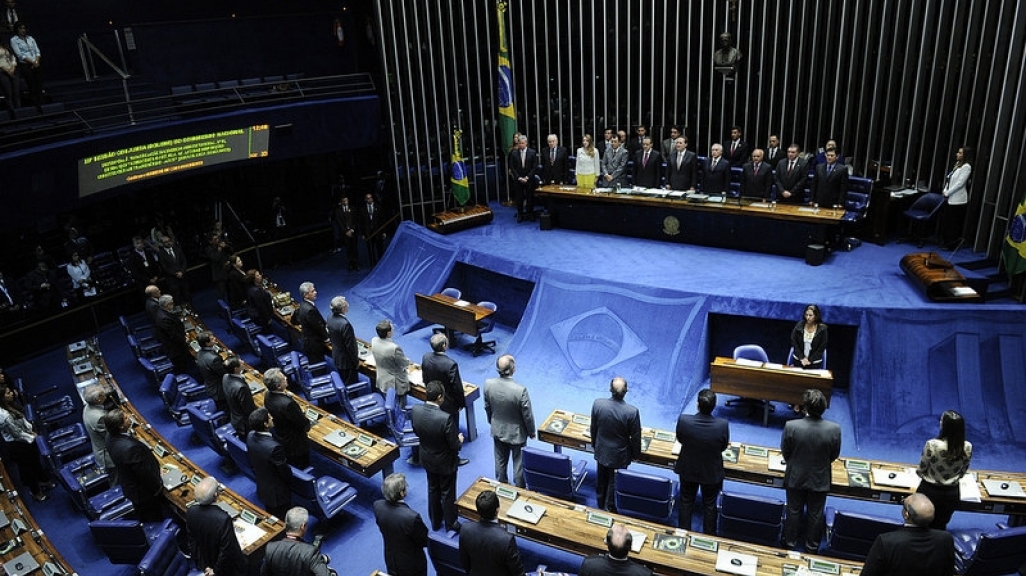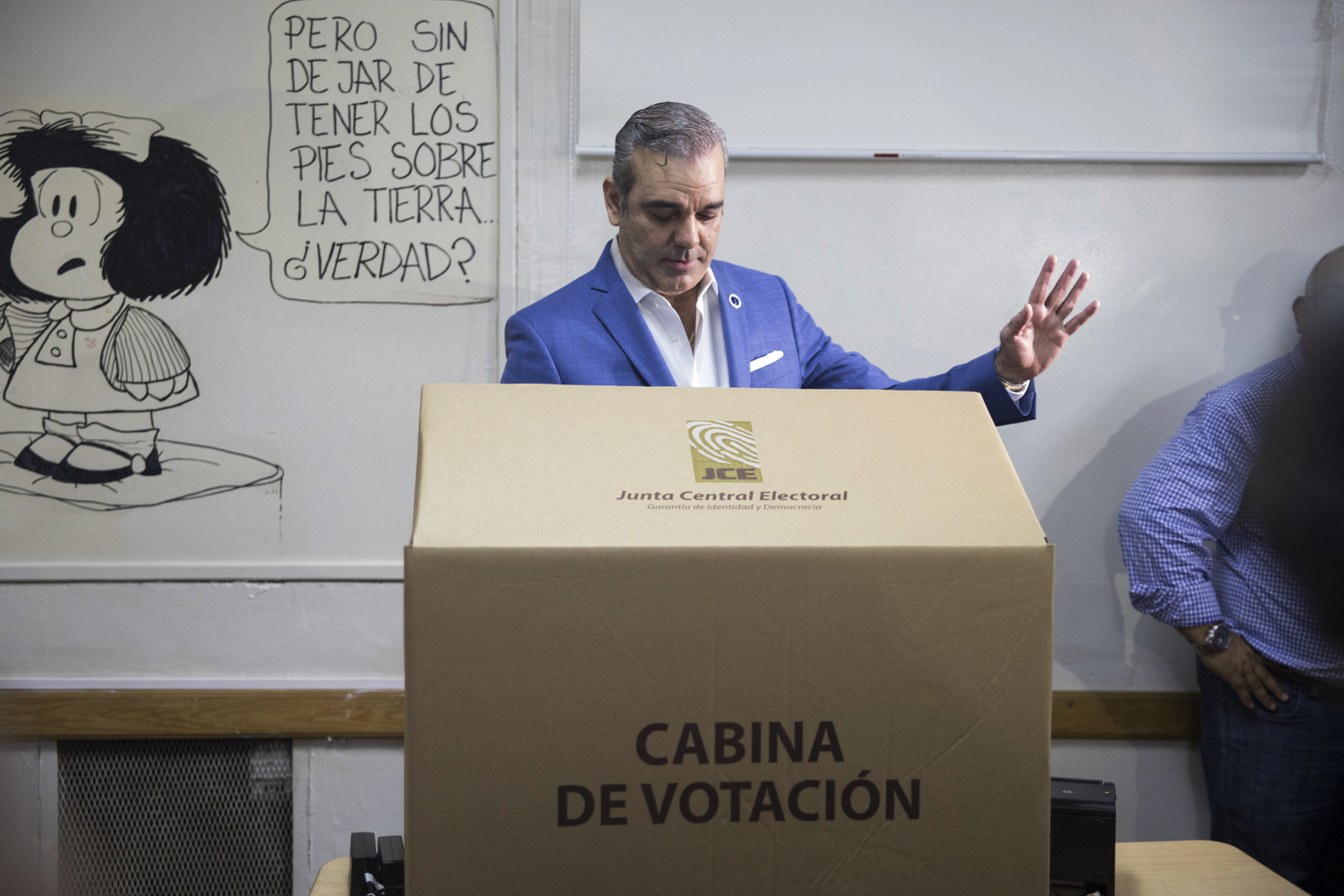Update: Brazil's Congress Eyes Reforms ahead of the 2018 Elections
Update: Brazil's Congress Eyes Reforms ahead of the 2018 Elections
The country's lower house is in a race against time to increase campaign funds and change how legislators get elected.
Updated August 17, 2017—Brazil’s Congress is racing against the clock to approve a series of political reforms ahead of next year’s general elections, when voters will choose a new president, 27 governors, 54 senators, 513 representatives to the Chamber of Deputies, and 1,059 state legislators. A reform to change voting rules has been on Brazilians’ wish list for years but became a priority since the ongoing Lava Jato investigations set off a political crisis and implicated a slew of the country’s elected officials.
Proposals currently being debated in Congress reflect the diverse and often divergent views of how the country should improve its political system, ranging from enacting gender quotas to eliminating the roles of vice president, lieutenant governors, and deputy mayors. While many of the proposed bills are not expected to pass, two initiatives have already gained political support and were approved by the lower house special commission on electoral rules this month. As such, if Congress approves the bills by October 7 of this year, how candidates finance their political campaigns and the rules determining who gets a seat in Brazil’s proportional system could change in 2018 elections.
Campaign finance reform
When it comes to campaign finance, the October 2018 votes will be the first general elections in which corporations will not be permitted to donate to campaigns and candidates will have to disclose all campaign donations.
In September 2015, the country’s Supreme Court made it illegal for corporations to donate money to political campaigns. During the 2014 general elections, private donations came mostly from corporations and were worth 5 billion reais, equivalent to $2.3 billion at the time. The Supreme Court ruling allowed private donations from individuals to continue, but capped them at 10 percent of donors’ income in the previous fiscal year. The 2016 municipal elections took place under the new rule.
With these new limits in place, legislators have been looking for ways to increase public funds for their campaigns. On August 10, the Chamber of Deputies commission on electoral reform approved text for a constitutional amendment changing several electoral rules for 2018. The proposal includes the creation of the Special Fund to Finance Democracy, equivalent to 0.5 percent of the country’s net tax revenue in 12 months. This year the fund would amount to $1.1 billion according to the bill, but if the country finishes 2017 generating revenues as high as the executive branch predicted earlier in the year, it could get up to $1.9 billion before political campaigns officially start. The commission is still discussing how political parties would use the money allocated, and the constitutional amendment to create the fund is to be voted on this week in the lower house. It must also be approved twice by two-thirds of the Senate.
The proposal also aims to change the limits for private donations, capping private donations at 10 times the monthly minimum wage (totaling nearly $3,000); eliminating self-donations for candidates for the presidency, governorships, and the Senate; capping self-donations of candidates to the lower house to 7 percent of the spending limit of their own campaign, which will be determined based on each state’s population; and allowing contributions from anonymous donors and crowdfunding sites. Limiting self-financing seeks to even out conditions for candidates and avoid wealthy Brazilians from getting elected with their own money—a consequence of campaigns operating under new rules in the last municipal elections.
This would not be the first time that legislators, facing fewer options to raise money, increased the public funds available for political campaigns. As of now, Brazilian politicians can already count on a Political Parties Fund, a public resource to finance the campaigns of the country’s 35 parties, calculated by Congress when legislators approve the federal budget. Five percent of the funds are allocated on an equal basis to all parties and 95 percent in proportion to votes obtained in the previous election for seats in the Chamber of Deputies.
In 2014, this fund received $131 million. In 2015—when many representatives were involved in a historic corruption scandal that unveiled illicit private funds to politicians across nearly all political parties—Congress voted to nearly triple the size of the public fund.
The distritão electoral system
In addition to increasing the public money available for campaigns, the constitutional amendment proposed by representatives also alters the electoral system for the Chamber of Deputies, as well as state and local officials.
Members of the lower house are currently elected using party list, proportional representation. Rather than directly electing candidates, voters can either cast ballots for preferred candidates or for a party, with vacant seats then allocated to the participating parties and multiparty coalitions in proportion to the number of votes received. The candidates who receive the most votes within a party or coalition ticket are then elected to fill the seats.
One of the proposed changes in the constitutional amendment approved by the Chamber of Deputies electoral commission and entering the voting floor this week would affect the election of deputies, state legislators, and city councilmembers by implementing a single, nontransferable vote system, known as distritão. Under this system, votes would be cast only for candidates rather than parties, making state borders the electoral districts for the Chamber of Deputies races, and city limits for city council ones. Campaigns would therefore be forced to shift the focus away from parties and coalitions and toward individual candidates. The advantage of this proposal would be the simplification of a process that today gives the upper hand to political coalitions that sweep seats and leaves candidates with higher popular vote counts out of the legislature.
Several smaller opposition parties are against the measure, with the argument that it weakens political parties’ representation. Political scientists caution that single, nontransferable vote systems like distritão typically result in higher reelection rates of officials by favoring candidates with more resources and name recognition, disadvantaging candidates running outside more established parties. The system is currently only used for legislative elections in Afghanistan, Vanuatu, and the UK's Pitcairn Islands.
In addition to the single, nontransferable vote system, a “mixed district” system has also been proposed to apply to elections after 2022. This system would allow electors to vote twice in elections for federal and state deputies. One vote would be cast from a list from a voter’s district and the second vote would be cast from a closed list determined by party officials. Half of vacancies would be filled by the candidates with the most votes in each district, while the remaining seats would be distributed between parties proportional to the votes received.
Race against time
The constitutional amendment to create the new political campaign fund and change electoral rules remains controversial in Congress, only narrowly winning approval to proceed to floor debate. Whether it passes is far from certain. Several representatives pushed to move the bill to the Chamber’s floor this week, but there has been ongoing criticism of the the distritão measure, with one legislator in opposition of it, Henrique Fontana of the Workers Party, saying the amendment could not pass the Chamber with distritão included and that a sufficient number of lawmakers support removing it from the bill. In the end, Wednesday’s Chamber session extended into the night without the bill coming up for a vote. A vote will likely take place on August 22.
The bill needs to be approved by at least 308 of 513 deputies. After that, two-thirds of the Senate needs to approve the measures in two votes to change the Constitution. The votes need to conclude before October 7 this year for the new rules to apply to the 2018 general elections.









